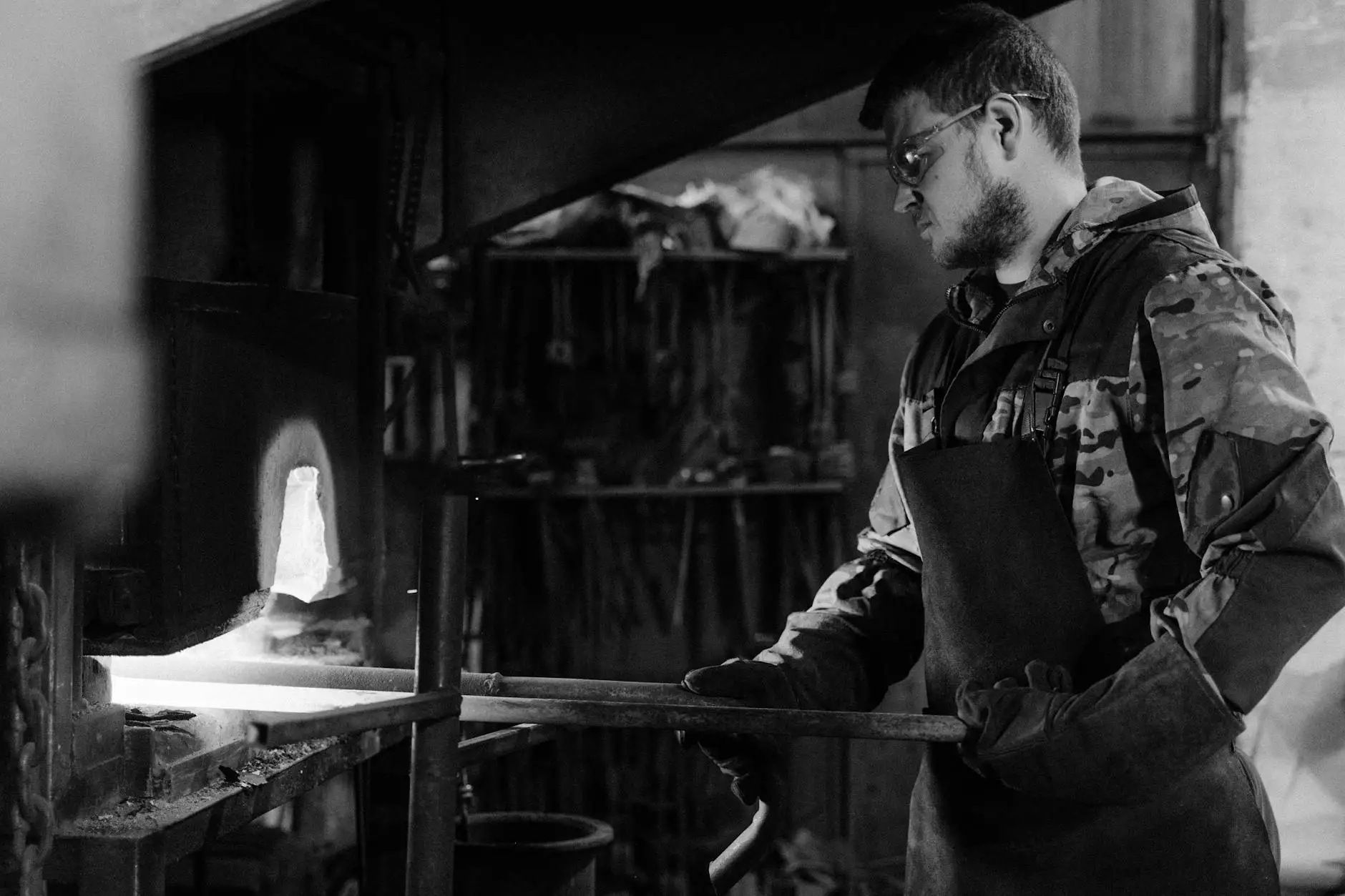The Future of Auto Parts Manufacturers: A Comprehensive Overview

In the fast-paced world of automotive technology, the role of auto parts manufacturers is more crucial than ever. As vehicles evolve—including the shift towards electric and hybrid cars—the need for high-quality, innovative parts is at the forefront of industry demands. In this article, we will delve deeply into the landscape of auto parts manufacturers, exploring their challenges, innovations, and future prospects.
The Importance of Auto Parts Manufacturers
Auto parts manufacturers serve as the backbone of the automotive industry. They are responsible for producing the diverse components that make up vehicles, from engines and transmissions to electronic systems and safety features. The quality of these parts directly influences vehicle performance, safety, and longevity. Here are some critical ways in which they contribute:
- Quality Assurance: Manufacturers ensure that every component meets stringent safety and quality standards, which is vital for consumer protection and vehicle integrity.
- Innovation: With the automotive landscape rapidly changing, manufacturers invest in research and development to create high-tech parts that enhance vehicle functionality and efficiency.
- Sustainability: Green practices in manufacturing are becoming increasingly important, with many companies adopting sustainable materials and processes to minimize environmental impact.
Key Trends Shaping the Auto Parts Manufacturing Industry
The automotive industry is undergoing a significant transformation, influenced by various trends that impact auto parts manufacturers. Understanding these trends is crucial for companies aiming to stay competitive:
1. Shift to Electric and Hybrid Vehicles
The rise of electric and hybrid vehicles presents both challenges and opportunities for auto parts manufacturers. Traditional components, like internal combustion engines, are being phased out and replaced with electric drivetrains. Consequently, manufacturers must:
- Adapt to new powertrains such as batteries and electric motors.
- Invest in technology to produce lighter and more efficient components that contribute to overall vehicle efficiency.
- Develop charging infrastructure components, including power management systems and connectors.
2. Advanced Manufacturing Techniques
The adoption of advanced manufacturing techniques, such as 3D printing and additive manufacturing, is revolutionizing the way auto parts manufacturers operate. These technologies allow for:
- Reduced waste and lower production costs through efficient material use.
- Customization of parts at scale, enabling manufacturers to meet specific client or model requirements.
- Rapid prototyping, allowing for faster design iterations and innovation.
3. Automation and Smart Factories
The implementation of robotics and automation in manufacturing processes is transforming production lines. Smart factories leverage the Internet of Things (IoT) and AI, leading to:
- Increased efficiency and reduced downtime through predictive maintenance.
- Enhanced quality control by utilizing real-time data analytics.
- Improved safety for workers, as machines handle more hazardous tasks.
Challenges Faced by Auto Parts Manufacturers
While the future looks promising, auto parts manufacturers face several challenges that could impact their operations:
1. Global Supply Chain Disruptions
The COVID-19 pandemic highlighted vulnerabilities in global supply chains, affecting everything from raw materials to transportation logistics. Manufacturers must focus on:
- Diversifying their supply sources to mitigate risks.
- Investing in local production facilities to decrease reliance on overseas suppliers.
2. Regulatory Compliance
As environmental regulations become stricter worldwide, auto parts manufacturers must navigate complex compliance landscapes, requiring them to:
- Invest in greener technologies and sustainable materials.
- Stay informed about changing regulations in different markets.
3. Competition and Cost Pressures
In a globalized market, competition is fierce. Pressure to reduce costs while maintaining quality means manufacturers must continually seek efficiencies. Strategies can include:
- Leveraging technology to streamline operations.
- Forming partnerships with other companies to share resources and technologies.
The Role of Innovation in Auto Parts Manufacturing
Innovation is the lifeblood of any industry, and for auto parts manufacturers, it’s no exception. Here are some areas where innovation is making a significant impact:
1. Smart Components
As vehicles become more connected, the demand for smart components is increasing. Examples include:
- Sensors that provide data on vehicle performance.
- Connected parts that can communicate with other systems within the vehicle for enhanced performance and diagnostics.
2. Sustainable Materials
The rise of eco-conscious consumers is pushing manufacturers to adopt sustainable materials. This includes:
- Biodegradable Plastics that reduce landfill waste.
- Recyclable Metals that can be reused without degrading quality.
How to Become a Leading Auto Parts Manufacturer
If you’re considering entering the auto parts manufacturing industry or looking to enhance your current operations, here are some suggestions:
1. Invest in Technology
Embrace new technologies that enhance your production capabilities. From using AI in supply chain management to investing in automation, staying ahead of technological trends is vital.
2. Focus on Quality Control
Implement rigorous quality control protocols to ensure every part meets high standards. This builds trust with clients and can position your brand favorably in the market.
3. Stay Agile and Adaptable
The automotive industry is continuously changing. Companies need to be flexible, adapting to new trends and consumer demands quickly.
The Future: What Lies Ahead for Auto Parts Manufacturers?
As we look to the future, the landscape of auto parts manufacturers will be shaped by various factors, including technological advancements, evolving consumer preferences, and increasing regulations. Here are some potential future trends:
- Greater Integration of Electric Vehicles: Manufacturers will need to ramp up production of specialized components for EVs, such as battery packs and electric drivetrains.
- Advanced Manufacturing Techniques: Continuous improvements in manufacturing capabilities will lead to even more efficient production processes.
- Focus on Circular Economy: A shift towards recycling and reusing materials will become critical as manufacturers strive for sustainability.
Conclusion: The Impact of Auto Parts Manufacturers on the Automotive Industry
The role of auto parts manufacturers in shaping the future of transportation cannot be overstated. Their dedication to quality, innovation, and sustainability is crucial for advancing the automotive industry as we know it. By staying ahead of emerging trends and adapting to the challenges of tomorrow, manufacturers will not only thrive but will also contribute to a safer, more efficient, and environmentally friendly automotive landscape.
At imautoparts.com, we recognize the pivotal role of auto parts manufacturers and are committed to sharing insights and information that help drive the industry forward. With a focus on quality parts and innovation, the future of automotive is bright, and we are excited to be a part of it.



